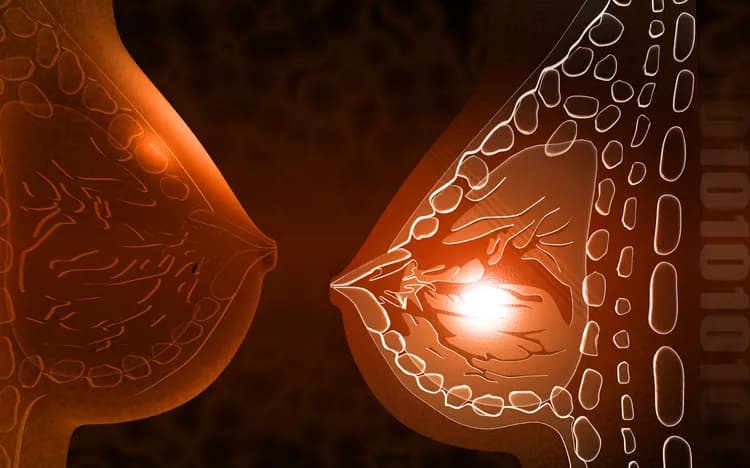
Fat Injection For Breast Reconstruction Doesn't Increase Risk Of Recurrent Breast Cancer
For women undergoing breast cancer surgery, a technique called lipofilling -- using the patient's own fat cells to optimize the results of breast reconstruction -- does not increase the risk of recurrent breast cancer, reports a study in the February issue of Plastic and Reconstructive Surgery®, the official medical journal of the American Society of Plastic Surgeons (ASPS).
"Our controlled study shows that, used as part of breast reconstruction, lipofilling is a safe procedure that does not increase the risk of recurrent or new breast cancers," comments ASPS member surgeon Dr. Steven J. Kronowitz of Kronowitz Plastic Surgery, Houston (formerly of M.D. Anderson Cancer Center), lead author of the new report.
New Evidence That Lipofilling Is Safe for Breast Reconstruction
Using a plastic surgery database, the researchers analyzed a series of more than 1,000 partial or total mastectomies followed by breast reconstruction with lipofilling. About 30 percent of cases involved risk-reducing mastectomy in women at high genetic risk of breast cancer.
Rates of recurrent or new breast cancers were then compared with a similar group of women who underwent mastectomy followed by breast reconstruction without lipofilling. In the lipofilling procedure, fat obtained by liposuction from one part of the body -- for example, the abdomen or thighs -- is injected to enhance the appearance of the breast.
For women who underwent mastectomy for breast cancer, overall recurrence rates were similar for reconstruction with versus without lipofilling. The rate of locoregional recurrence (in the breast and surrounding area) was not significantly different between groups: 1.3 percent for women who had lipofilling versus 2.4 percent in those who did not.
Rates of systemic (distant) cancer recurrence were similar as well: 2.4 percent with lipofilling versus 3.6 percent without. None of the women undergoing preventive mastectomy developed initial (primary) breast cancer.
In most patient subgroups, breast cancer recurrence risk was similar with or without lipofilling. The sole exception was women receiving hormone therapy, for whom lipofilling was associated with a small but significant increase in locoregional recurrence risk: 1.4 versus 0.5 percent.
Lipofilling is a fat grafting technique that is increasingly used to optimize the cosmetic results of breast reconstruction. In a 2013 survey, more than 60 percent of ASPS member surgeons said they used fat grafting as part of breast reconstruction.
But some plastic surgeons may still be reluctant to use lipofilling because of concern that it might affect the risk of primary or recurrent breast cancer. The new study of breast cancer recurrence risk associated with lipofilling is the first to use a control group of women who underwent breast reconstruction without lipofilling.
The results show no increase in the risk of locoregional or systemic recurrence in women with breast cancer who undergo breast reconstruction with lipofilling. The study also finds no evidence that lipofilling affects the risk of initial breast cancer for the growing number of high-risk women undergoing "preventive" mastectomy.
"Our results provide new evidence that lipofilling, used as part of breast reconstruction, is a safe procedure that does not increase the risk of recurrent or new breast cancer after mastectomy," Dr. Kronowitz comments. While highlighting the need for further research, the researchers hope their findings will encourage more plastic surgeons to use lipofilling to provide the best possible results of breast reconstruction for their patients undergoing breast cancer surgery.
The above post is reprinted from materials provided by Wolters Kluwer Health: Lippincott Williams and Wilkins. Note: Materials may be edited for content and length.
Disclaimer: DoveMed is not responsible for the adapted accuracy of news releases posted to DoveMed by contributing universities and institutions.
Primary Resource:
Kronowitz, S. J., Mandujano, C. C., Liu, J., Kuerer, H. M., Smith, B., Garvey, P., ... & Valero, V. (2016). Lipofilling of the Breast Does Not Increase the Risk of Recurrence of Breast Cancer: A Matched Controlled Study. Plastic and reconstructive surgery, 137(2), 385-393.
Related Articles
Test Your Knowledge
Asked by users
Related Centers
Related Specialties
Related Physicians
Related Procedures
Related Resources
Join DoveHubs
and connect with fellow professionals

0 Comments
Please log in to post a comment.